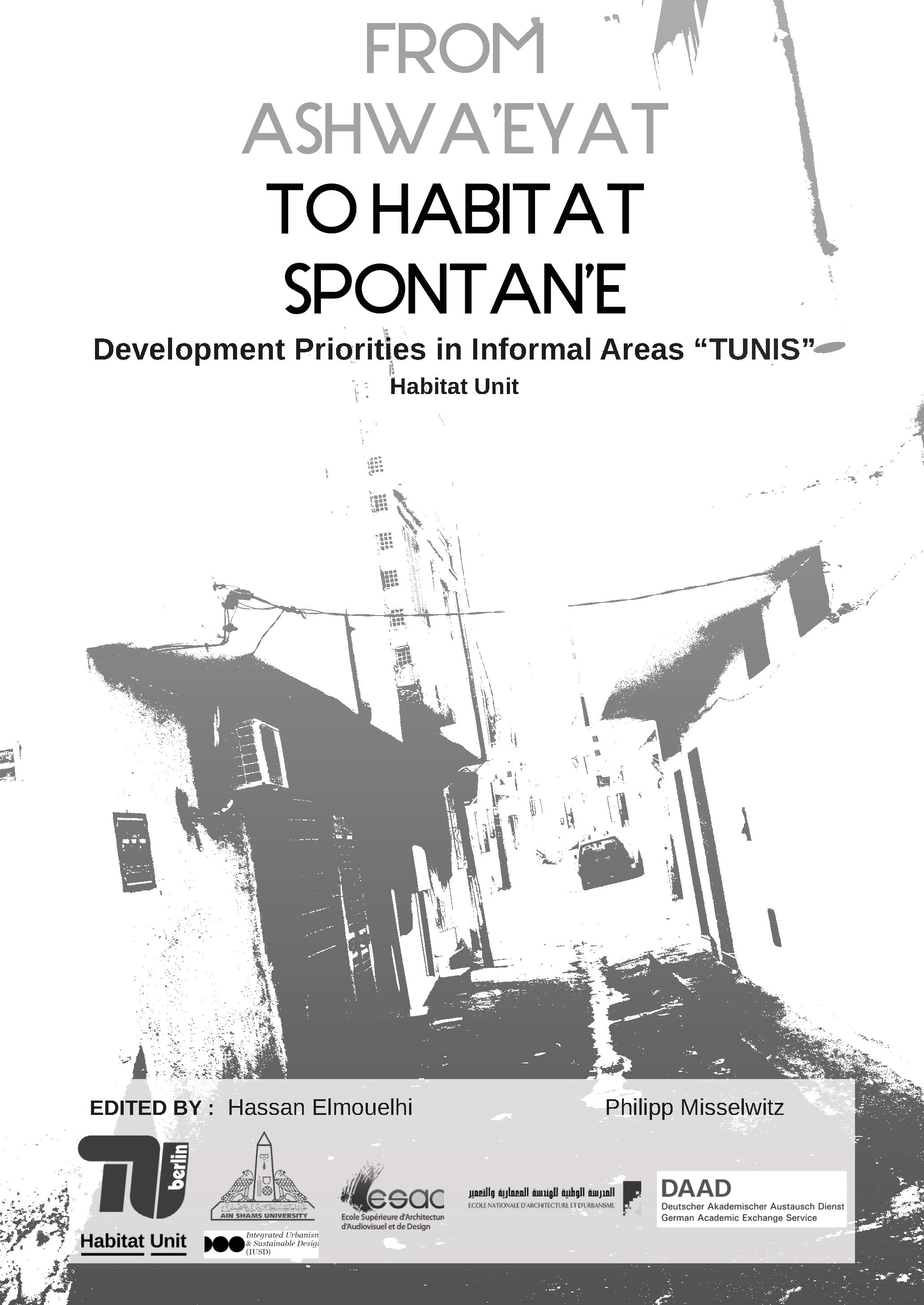PUBLICATION 2021
Hassan Elmouelhi, Philipp Misselwitz
From „Ashwa'eyat" to „Habitat Spontané"
Development Priorities in Informal Areas "Tunis"
Political democratic transformation processes that have been taking place in different Arab countries since 2011 deeply impact on cities and urban transformation in the region.
Made possible through a grant of the German Academic Exchange Network (DAAD) students will have the opportunity to visit and conduct research in one of the most fascinating countries of the Arab Spring movement: Tunisia.
Here, the impact of political and societal transformation on the residents of informal neighbourhoods (ashwa'eyat) will be explored. Change has created many opportunities for more local involvement and participation in urban upgrading, but also new challenges.

In preparatory sessions students will be introduced to the global discourse around urban informality drawing on a wide range of global and regional examples including ongoing research conducted at the Habitat Unit (DEVEPER).
Students will also critically examine current practices of upgrading in informal urban contexts led by governments, NGOs or international cooperation agencies such as GIZ.
During an extensive field trip to Tunis, students will then conduct research and field work in local informal areas, with a special focus on the area of Hay Ettadhamen.
Based on these findings we will analyse successes and failures of local policies towards informal neighbourhoods and propose new inclusive tools and approaches for participatory neighbourhood upgrading.
A key focus will be to question how governments and local residents can engage in new forms of (unorthodox) arrangements and partnerships to build a more inclusive, better serviced, resilient and just city.
Find publication here.